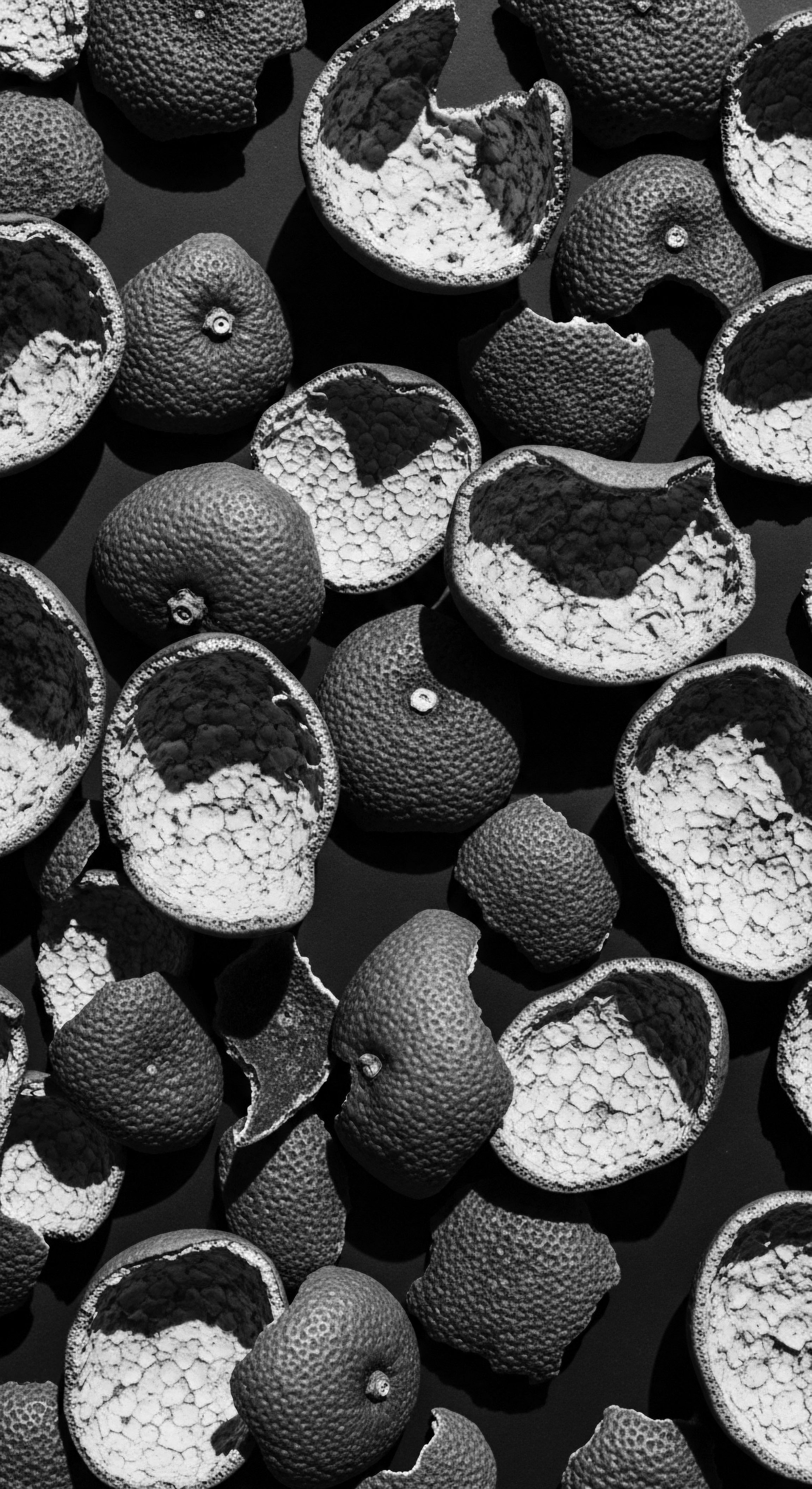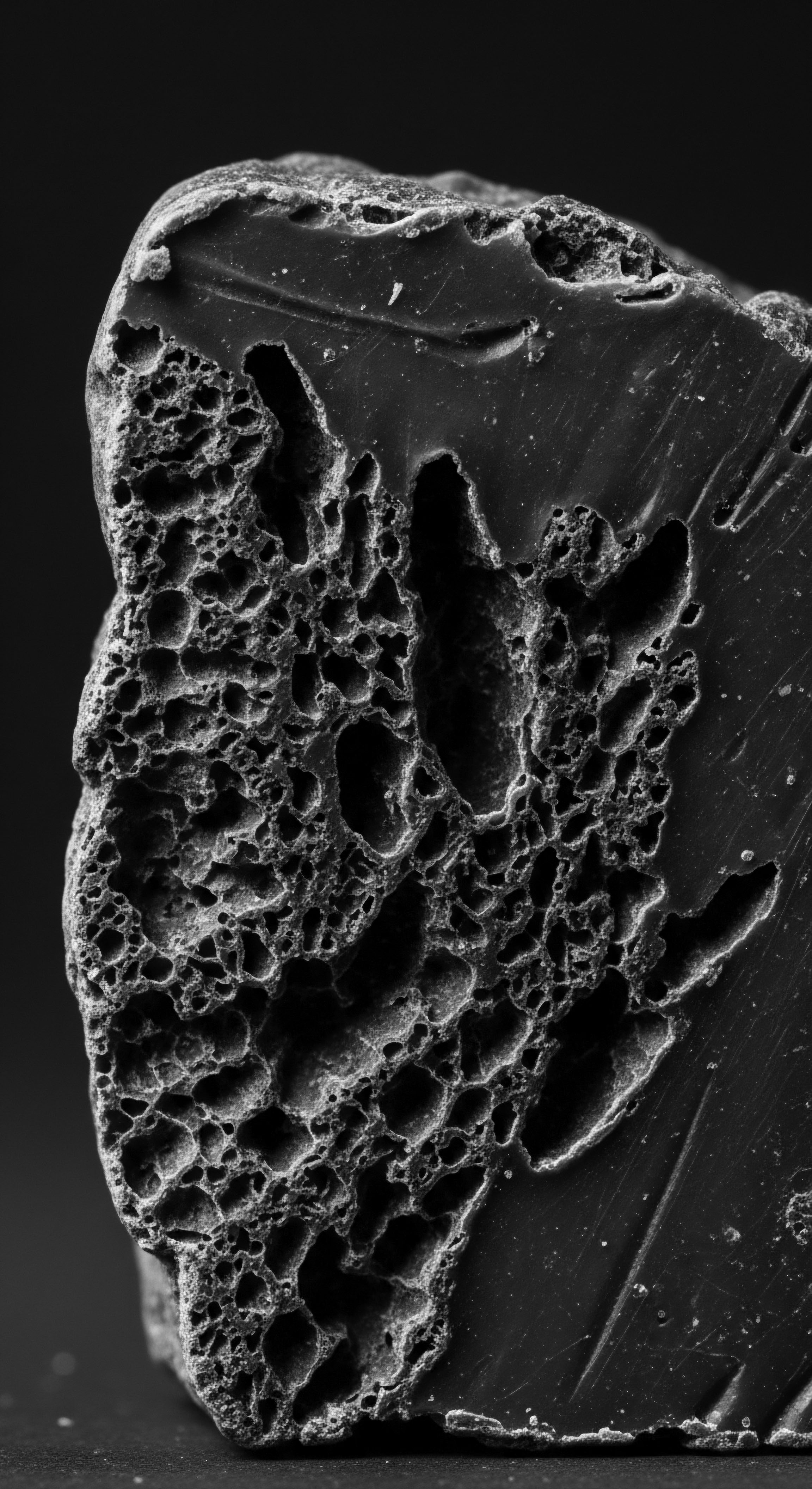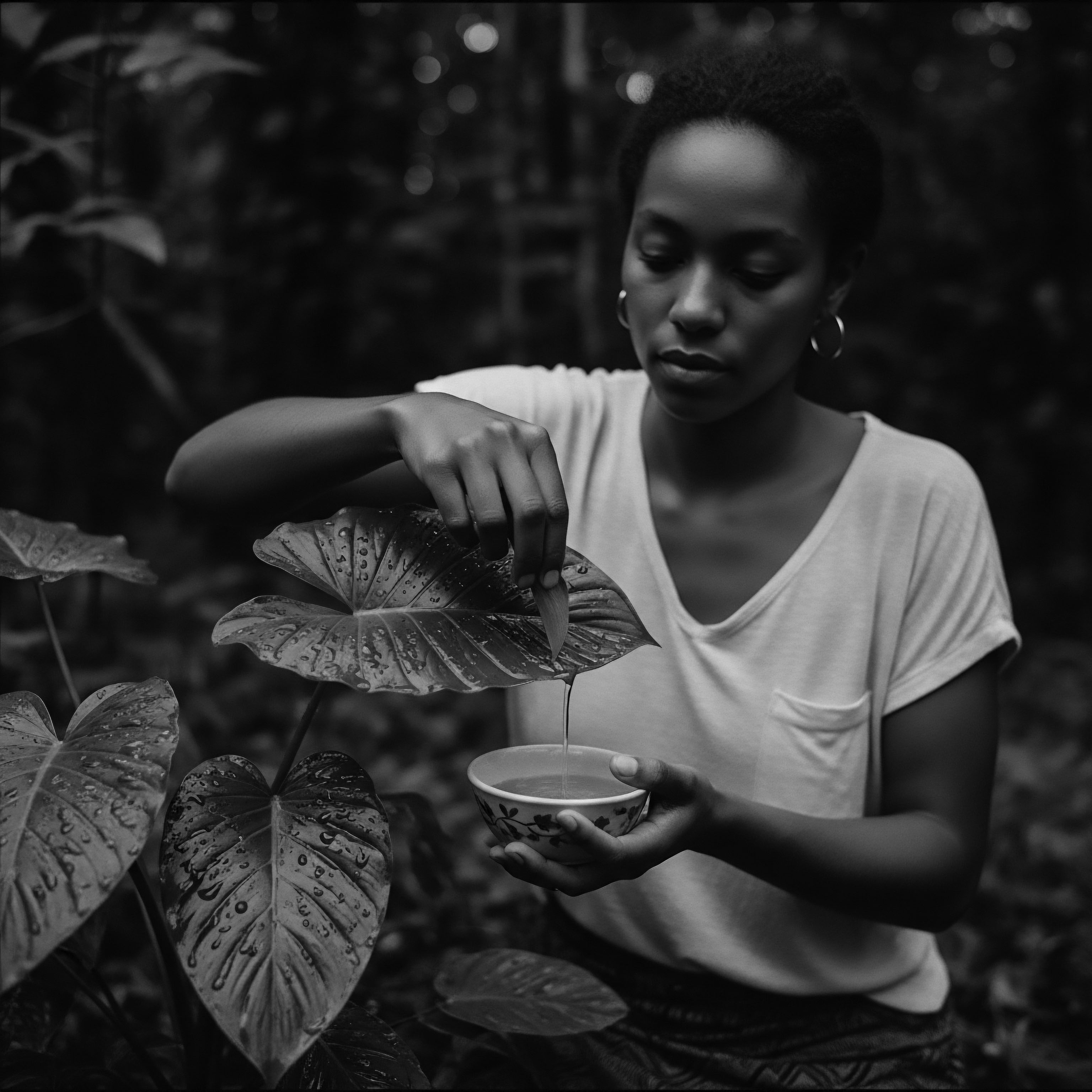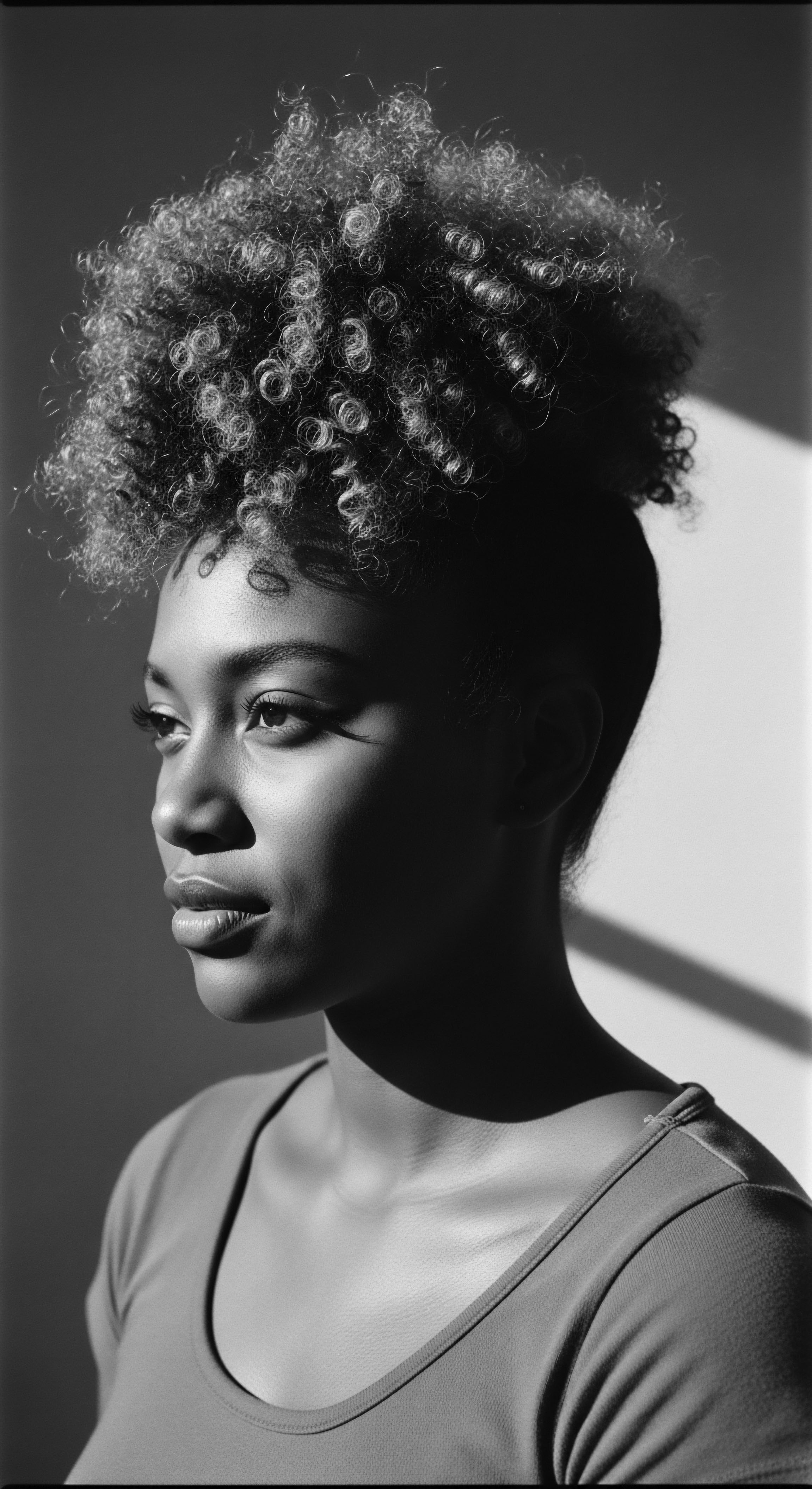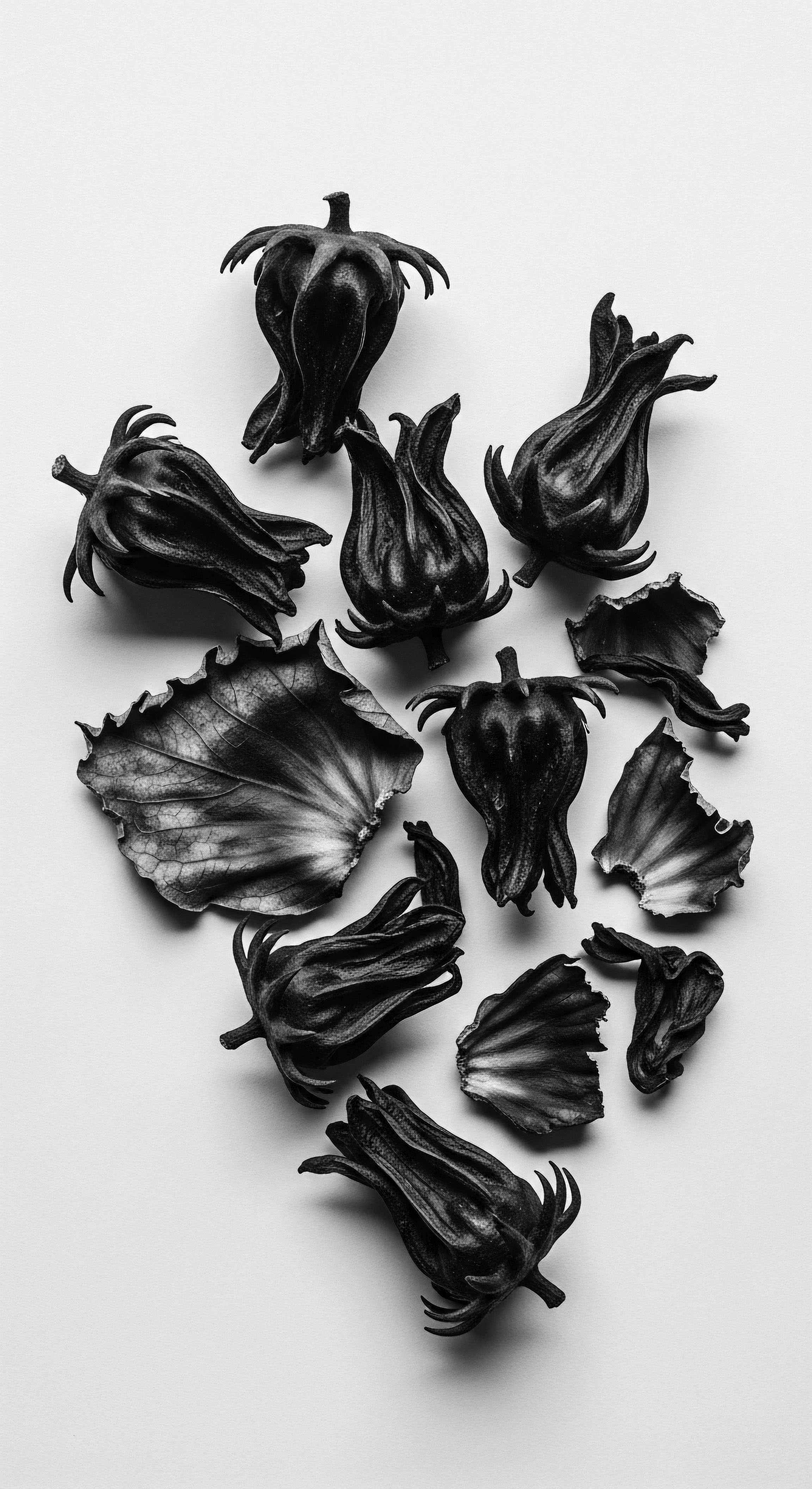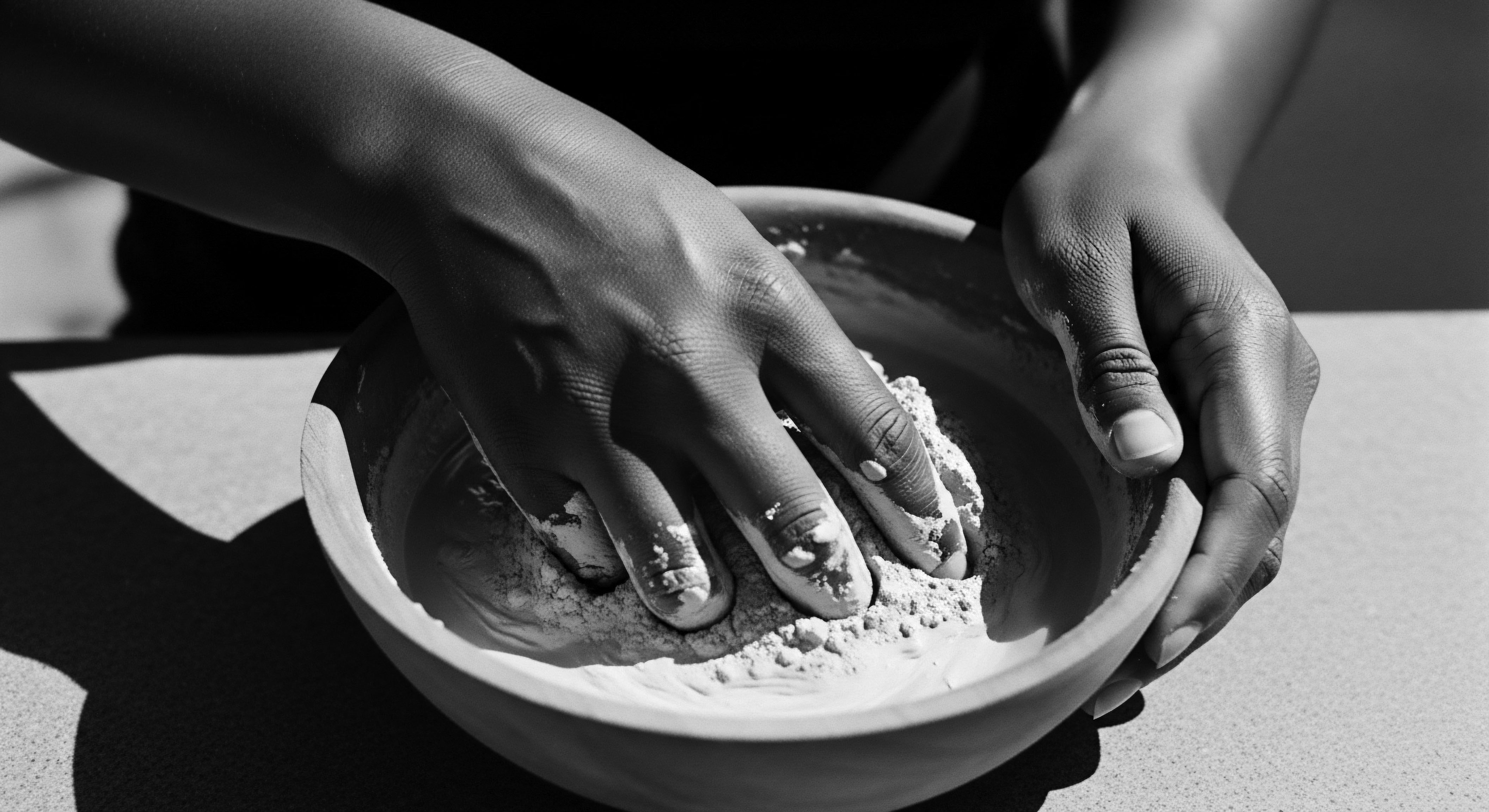
Fundamentals
The very concept of a Plant-Based Scalp, when viewed through the profound lens of textured hair heritage, extends far beyond a simple biological description. It is, at its most elemental meaning, a recognition of the scalp as a living canvas, a foundational ground that responds with an innate wisdom to the pure, untainted nourishment of the botanical world. This understanding begins with the physical presence of the scalp itself: a delicate ecosystem of skin, follicles, and intricate pathways that mirrors the earth from which plants emerge. For those whose lineage traces back to African shores and the vast tapestry of the diaspora, this connection to nature has always been intrinsically understood, a quiet truth passed down through generations.
Consider the scalp not merely as skin that covers the skull, but as a vibrant, receptive organ. Its uppermost layer, the epidermis, stands as a guardian, a protective shield against the outside world. Beneath this lies the dermis, where the bustling activity of life unfolds: blood vessels delivering vital nutrients, nerve endings sensing the gentlest touch, and sweat glands contributing to the scalp’s unique hydration. Crucially, it is here, nestled within the dermis, that the hair follicles reside ❉ minuscule yet mighty anchors from which each strand of textured hair springs forth, possessing its own unique curl pattern, its own spiral, its own testament to ancestral design.
A Plant-Based Scalp, then, refers to a holistic approach to caring for this foundational terrain, one that prioritizes ingredients harvested directly from flora. This encompasses an array of botanicals: leaves, roots, barks, seeds, flowers, and fruits, each carrying its unique offering. These natural components bring forth a symphony of compounds ❉ antioxidants, vitamins, minerals, essential fatty acids, and various phytochemicals ❉ all intended to support the scalp’s inherent functions. The intention is to work in concert with the scalp’s rhythms, rather than imposing synthetic solutions that might disrupt its delicate balance.
The core principle is one of symbiotic relationship, of fostering an environment where the scalp can thrive through the elemental gifts of the earth. From the earliest days of human civilization, particularly within African communities, this symbiotic bond was not merely a preference; it constituted a fundamental aspect of wellness and self-preservation. These practices acknowledged the scalp as a living entity, capable of absorbing, responding, and renewing when treated with respect and understanding. The definition of a Plant-Based Scalp, in this light, becomes less about what is applied and more about the philosophy underpinning the application: a return to foundational wisdom, a reverence for the earth’s bounty, and a deeply felt connection to the natural processes of growth and vitality that mirror life itself.
The Plant-Based Scalp signifies a profound, living connection to the earth’s botanicals, reflecting a timeless wisdom passed down through textured hair heritage.
The approach to Plant-Based Scalp care in historical contexts was often rooted in observable efficacy and communal knowledge. It meant understanding which leaves might soothe an irritated scalp, which oils could seal in moisture, or which barks could cleanse without stripping. These traditional practices were not haphazard; they were refined over centuries, through trials and shared experiences within families and communities. The simple meaning of a Plant-Based Scalp thus encapsulates this fundamental truth: the scalp, as a biological entity, is uniquely suited to receive and metabolize the complex, restorative properties of plants, mirroring the harmonious relationship between humanity and the earth.
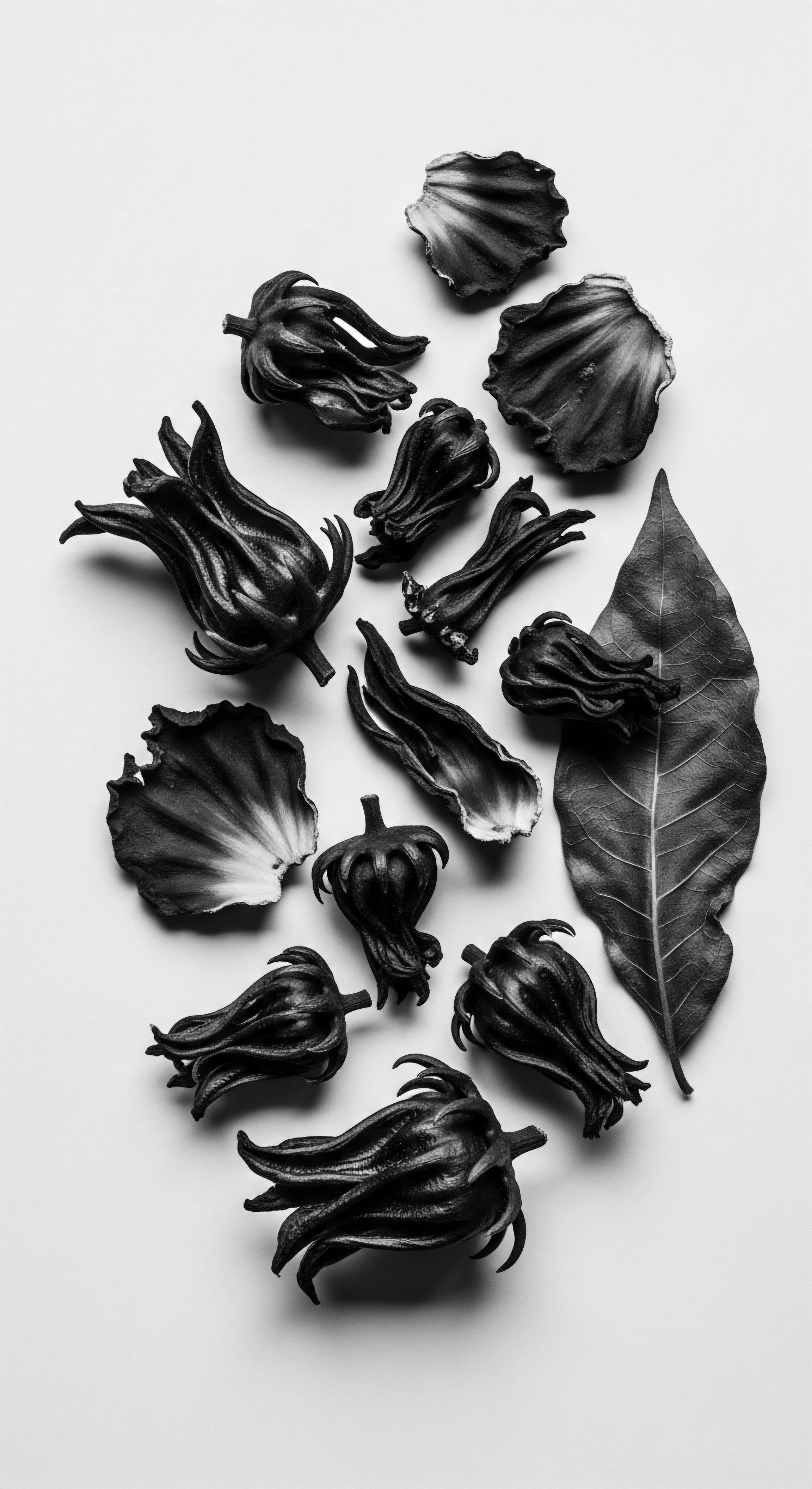
Intermediate
Moving beyond the foundational understanding, the intermediate comprehension of a Plant-Based Scalp deepens into the intricate dance between botanical biochemistry and the unique physiology of textured hair. This exploration reveals a profound alignment between ancestral practices and what modern science is now beginning to articulate about cellular health and follicular vitality. The Plant-Based Scalp, in this advanced consideration, represents an optimized environment where the inherent challenges and specific needs of highly coiled and curly hair types receive targeted, plant-derived support.
Textured hair, particularly that common among Black and mixed-race individuals, possesses a distinct morphology. Its elliptical or flattened shaft and often curved follicle create natural points where moisture can escape readily, making it susceptible to dryness and breakage. The sebaceous glands, while producing natural oils, often find it challenging for these oils to travel down the spiraling hair shaft, leaving the lengths of the hair vulnerable.
This inherent dryness historically presented a significant hurdle, driving many ancestral communities to seek external, plant-based remedies to maintain scalp health and hair integrity. The Plant-Based Scalp, in this context, stands as a testament to centuries of ingenious adaptation.
The botanical world offers a diverse array of solutions that historically addressed these specific needs. Plant oils, for instance, are not simply lubricants; they possess unique molecular structures that allow them to interact with the hair shaft and the skin in various ways. Certain oils, rich in fatty acids, can penetrate the hair cuticle, helping to strengthen the strand and minimize protein loss.
Others, acting as emollients, form a protective barrier on the scalp, reducing transepidermal water loss and sealing in much-needed moisture. Beyond oils, the efficacy of plant extracts stems from a complex interplay of bioactive compounds:
- Phytosterols ❉ These plant compounds share structural similarities with cholesterol and can assist in fortifying the skin’s barrier function, thereby contributing to a healthier scalp environment. They are found in many botanical oils and butters.
- Flavonoids ❉ Present in a multitude of plants, these powerful antioxidants help to shield scalp cells from environmental stressors, supporting cellular resilience and minimizing oxidative damage.
- Saponins ❉ Natural cleansing agents found in plants like Shikakai pods, saponins offer a gentle, yet effective, way to purify the scalp without stripping its essential lipids, a stark contrast to harsh chemical cleansers of later eras.
- Mucilage ❉ This gelatinous substance, present in plants such as flaxseed or aloe vera, provides exceptional slip and hydration, which historically aided in detangling fragile textured hair and soothing the scalp.
Historically, communities relied on deep empirical knowledge. The application of indigenous butters, decoctions of leaves, or infused oils represented a sophisticated understanding of localized botanical pharmacology. This is a practice that predates formal scientific inquiry yet often aligns with its findings.
The Plant-Based Scalp approach recognizes that these plant constituents can collectively reduce inflammation, balance the scalp’s microbiome, and promote robust follicular function. It is a dialogue between the scalp’s intrinsic needs and nature’s tailored responses, a conversation centuries in the making.
The meaning of the Plant-Based Scalp, at this level, becomes an acknowledgment of a profound intelligence embedded within the natural world. It is the recognition that the delicate balance of the scalp’s microbiome ❉ the community of microorganisms residing on the skin ❉ can be gently influenced by plant compounds, fostering beneficial flora and deterring opportunistic pathogens. This historical connection is not merely about individual ingredients; it represents a deep cultural knowledge system, a legacy of intuitive understanding that predates pharmaceutical laboratories and synthetic formulations. It speaks to a shared human history of seeking wellness within the very fabric of the earth.

Academic
The academic delineation of the Plant-Based Scalp transcends anecdotal or purely empirical observations, venturing into the physiological, biochemical, and socio-historical underpinnings that render this concept profoundly significant, particularly within the context of textured hair, Black hair, and mixed-race hair experiences. The Plant-Based Scalp, in this rigorous examination, describes a scalp environment meticulously sustained and optimized through the purposeful application of botanically derived compounds, fostering a homeostatic balance conducive to robust hair growth and health. This understanding is grounded in an interdisciplinary approach, drawing from trichology, ethnobotany, dermatology, and cultural anthropology.
At its core, the Plant-Based Scalp signifies a commitment to leveraging the complex secondary metabolites and primary compounds present in plant life for dermatological and follicular benefit. The human scalp, a uniquely specialized integumentary system, is characterized by a dense concentration of hair follicles and sebaceous glands, a distinctive microbiome, and specific pH requirements for optimal function. For individuals with textured hair, these physiological parameters present distinct considerations.
The inherent helix of the Afro-textured hair shaft, often elliptical in cross-section, and its characteristic points of torsion, dictate a propensity for dryness due to impeded sebum flow and increased surface area for moisture evaporation. This morphological reality elevates the importance of external lipid and humectant replenishment.
The efficacy of plant-based interventions stems from their rich phytochemical profiles. Lipids, such as those found in shea butter (Vitellaria paradoxa), coconut oil (Cocos nucifera), or Jamaican black castor oil (Ricinus communis), extend beyond mere surface lubrication. They are replete with fatty acids ❉ lauric acid, oleic acid, linoleic acid, and stearic acid ❉ that can penetrate the stratum corneum, enhancing the skin barrier function. This infiltration assists in reducing transepidermal water loss (TEWL), a critical aspect of maintaining scalp hydration, especially for hair types prone to xerosis.
Furthermore, certain plant oils exhibit direct antimicrobial properties, assisting in the moderation of commensal organisms like Malassezia species, which, when overgrown, contribute to conditions such as seborrheic dermatitis. While historical practices of heavy scalp oiling sometimes created an environment conducive to Malassezia proliferation in some individuals, particularly with infrequent cleansing (Callender et al. 2015), the judicious and informed application of specific plant oils, coupled with appropriate cleansing, still offers a cornerstone of scalp care, particularly in moisture retention. This highlights a dynamic interplay between traditional wisdom and contemporary scientific refinement.
The definition of Plant-Based Scalp also encompasses a nuanced comprehension of the scalp’s microcirculation and cellular metabolism. Botanical extracts, rich in antioxidants such as flavonoids and polyphenols, help to mitigate oxidative stress, a known contributor to cellular damage and premature follicular aging. These compounds scavenge reactive oxygen species, protecting cellular integrity and supporting the longevity of dermal papilla cells, which are crucial for hair matrix proliferation. Certain plant-derived compounds, such as those from rosemary (Rosmarinus officinalis) or peppermint (Mentha piperita) oils, can promote vasodilation, thereby enhancing blood flow to the follicular units, which in turn facilitates nutrient delivery and waste removal ❉ a biological mechanism long observed through the invigorating sensation of traditional scalp massages.
The academic interpretation of Plant-Based Scalp care merges ancient botanical wisdom with modern biochemical understanding, recognizing a profound connection to Black and mixed-race hair identity.
The concept of a Plant-Based Scalp finds its deepest academic resonance in the historical and cultural trajectory of Black and mixed-race hair care. For centuries, across various African societies, hair was not a mere adornment but a profound semiotic system, conveying status, age, marital state, spiritual beliefs, and even tribal affiliation (Heaton, 2021). The very act of hair care was often a communal ritual, a sacred practice passed down through generations, utilizing indigenous botanicals. Consider the enduring legacy of the Shea tree (Vitellaria paradoxa) in West Africa.
Its nuts, transformed into nourishing butter through labor-intensive, artisanal processes predominantly carried out by women, have served as a cornerstone of traditional scalp and hair care for millennia. This practice is not merely utilitarian; it embodies a deep connection to ancestral wisdom and a sustainable relationship with the natural world. Its use for scalp health, particularly for moisturizing and protecting the scalp in arid climates, is documented to date back to 3,500 BCE, as unearthed in ancient Egyptian burial sites (Gift, 2024; Healthline, 2018). This speaks to a historical continuity of knowledge, where the Plant-Based Scalp was not a theoretical construct but a lived reality, deeply interwoven with cultural identity and communal well-being.
This historical practice of using plant-based emollients and treatments for the scalp also represented a form of resilience and resistance in the face of systemic dehumanization. During the transatlantic slave trade, the deliberate shaving of hair by enslavers was a violent act of cultural erasure, severing physical ties to African identity and ancestral practices (Heaton, 2021). Yet, in the Americas, despite the scarcity of traditional African botanicals, enslaved communities adapted, seeking out local plant substitutes and maintaining fragments of ancestral practices, thereby preserving a vital link to their heritage through hair care. The Plant-Based Scalp, then, is more than a dermatological term; it is a repository of historical endurance, adaptation, and cultural preservation.
From a contemporary academic standpoint, understanding the Plant-Based Scalp necessitates a critical evaluation of traditional practices and modern scientific validation. While many ancestral methods are supported by modern biochemical understanding, some require contextualization. For instance, the traditional practice of “greasing the scalp” with heavy oils, while intended to moisturize and protect, can, in certain circumstances, contribute to the development or exacerbation of seborrheic dermatitis, a common inflammatory condition in individuals with Afro-textured hair (Callender et al.
2015). This is attributed to the potential for excessive oil to trap moisture and create an anaerobic environment, favoring the proliferation of Malassezia yeast.
Nevertheless, this academic insight does not invalidate the profound historical and cultural significance of plant-based scalp care. Instead, it invites a deeper, more refined dialogue between ancestral wisdom and current scientific knowledge, leading to a more informed application of botanicals. The meaning of Plant-Based Scalp, therefore, is not static; it evolves, incorporating new scientific discoveries while holding firm to the rich tapestry of heritage and traditional ecological knowledge. It champions the notion that hair health, particularly for textured hair, is inextricably linked to scalp health, and that nature, when approached with reverence and scientific discernment, holds many keys to its vitality.
Academic research continues to explore the diverse pharmacological activities of African plants used for hair and scalp care. A review of African plants used for hair treatment and care identified 68 species, with Lamiaceae (e.g. various mints) being the most represented family (Fidèle et al. 2024).
Many of these species are traditionally used for conditions such as alopecia, dandruff, and lice, and some even show potential for antidiabetic properties, suggesting broader systemic benefits from topical application, though this requires further investigation (Fidèle et al. 2024). This ongoing scientific inquiry validates the intuitive wisdom of past generations, reinforcing the understanding that the Plant-Based Scalp is a dynamic ecosystem, responsive to the potent interventions found within the natural world.
The comprehensive explication of the Plant-Based Scalp in an academic context thus highlights several interconnected incidences across fields. It necessitates a thorough consideration of environmental factors, such as the local flora available to ancestral communities, and their adaptations. It also involves an understanding of nutritional impacts on hair and scalp health, where certain plant-based compounds may offer topical nutritional support.
Furthermore, it delves into the psychosocial dimensions of hair care, recognizing that the act of tending to the Plant-Based Scalp with ancestral remedies fosters a sense of cultural identity, self-acceptance, and connection to a lineage of resilience and beauty. This expansive meaning acknowledges the Plant-Based Scalp as a critical interface between individual physiology, historical continuity, and the enduring power of plant intelligence.

Reflection on the Heritage of Plant-Based Scalp
As we gaze upon the intricate meaning of the Plant-Based Scalp, a profound echo arises from the annals of time, a whispered truth that resonates with the very soul of a strand. This exploration has taken us from the elemental biology of the scalp’s living canvas to the rich tapestry of ancestral practices, revealing that the connection between textured hair, its communities, and the botanical world is not merely historical; it is a living, breathing legacy. The Plant-Based Scalp, in its deepest sense, embodies a continuous dialogue between humanity and nature, a testament to inherited wisdom and an enduring capacity for self-care rooted in the earth’s abundant generosity.
For those whose hair coils and kinks in a dance of genetic memory, the journey of the Plant-Based Scalp is a homecoming. It recalls the hands of grandmothers and great-grandmothers, meticulously preparing butters and infusions, their knowledge a sacred inheritance passed down through touch and oral tradition. These practices, once dismissed as mere folklore, now find validation in scientific inquiry, affirming the profound efficacy of compounds known instinctively for centuries. The Plant-Based Scalp is a remembrance of these tender threads of care, a celebration of resilience, and an unwavering commitment to beauty that defies imposed standards.
The Plant-Based Scalp signifies more than just product choice; it represents a philosophy of holistic well-being, an alignment with the rhythms of nature, and an affirmation of identity. It invites us to consider the journey of each botanical ingredient, from the soil to the scalp, recognizing the energy and wisdom it carries. In a world often driven by instant gratification and synthetic solutions, the patient, reverent approach to the Plant-Based Scalp calls us back to a slower, more intentional pace ❉ a pace that honors the natural growth cycle of textured hair and the deep-seated cultural significance it holds.
The Plant-Based Scalp serves as a vibrant thread connecting ancestral wisdom with present-day care, reminding us that hair health is a cultural and historical narrative.
The ongoing journey of the Plant-Based Scalp mirrors the unfolding narrative of textured hair itself: dynamic, adaptive, and endlessly resourceful. It stands as a beacon for futures that celebrate uniqueness, that prioritize gentle nourishment, and that continually seek harmony between human ingenuity and natural intelligence. This understanding does not merely inform our routines; it inspires a deeper appreciation for the boundless ingenuity of our ancestors and the enduring power of the earth to sustain and heal, ensuring that the legacy of textured hair and its inherent beauty continues to flourish for generations to come. The unbound helix, thus, becomes a symbol of liberation, deeply rooted in the soil from which all life, and all true care, springs.
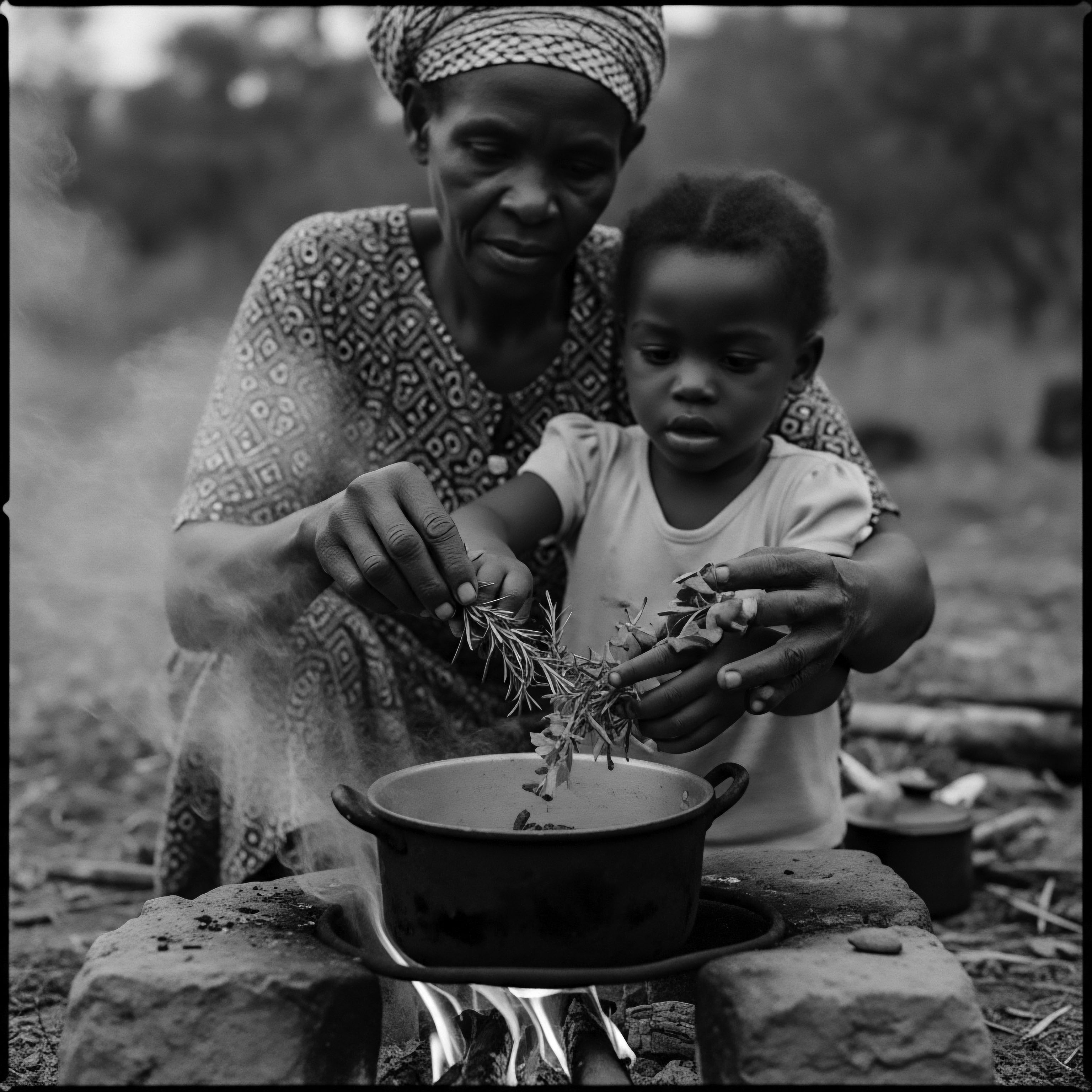
References
- Callender, V. D. Paranjpe, T. & Reid, S. (2015). Contemporary African-American Hair Care Practices. Cutis, 95(5), E10-E14.
- Fidèle, N. et al. (2024). Cosmetopoeia of African Plants in Hair Treatment and Care: Topical Nutrition and the Antidiabetic Connection? Cosmetics, 11(2), 52.
- Gift, J. (2024). Cocoa and Shea Butters: African Beauty Secret for Hair Care and Glowing Skin. FunTimes Magazine.
- Heaton, S. (2021). Heavy is the Head: Evolution of African Hair in America from the 17th c. to the 20th c. The Library of Congress.
- Healthline. (2018). Shea Butter for Hair: Raw, Hair Growth, and Natural Hair.
- Lowe, L. et al. (2025). Historical Perspectives on Hair Care and Common Styling Practices in Black Women. Journal of Drugs in Dermatology, 24(3), 273-278.

